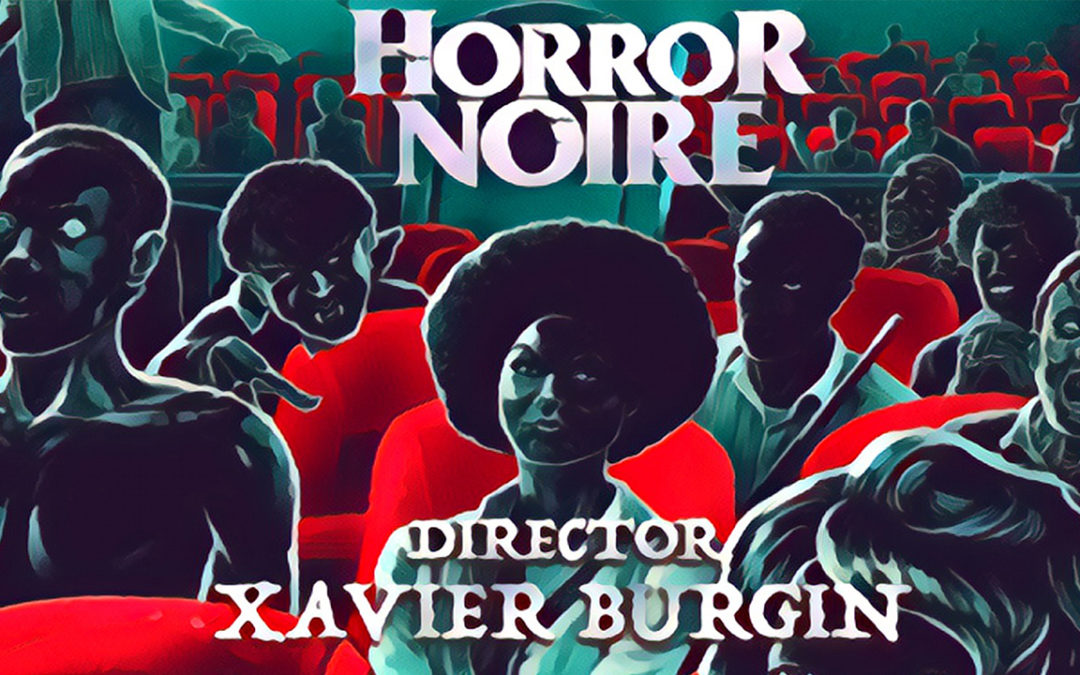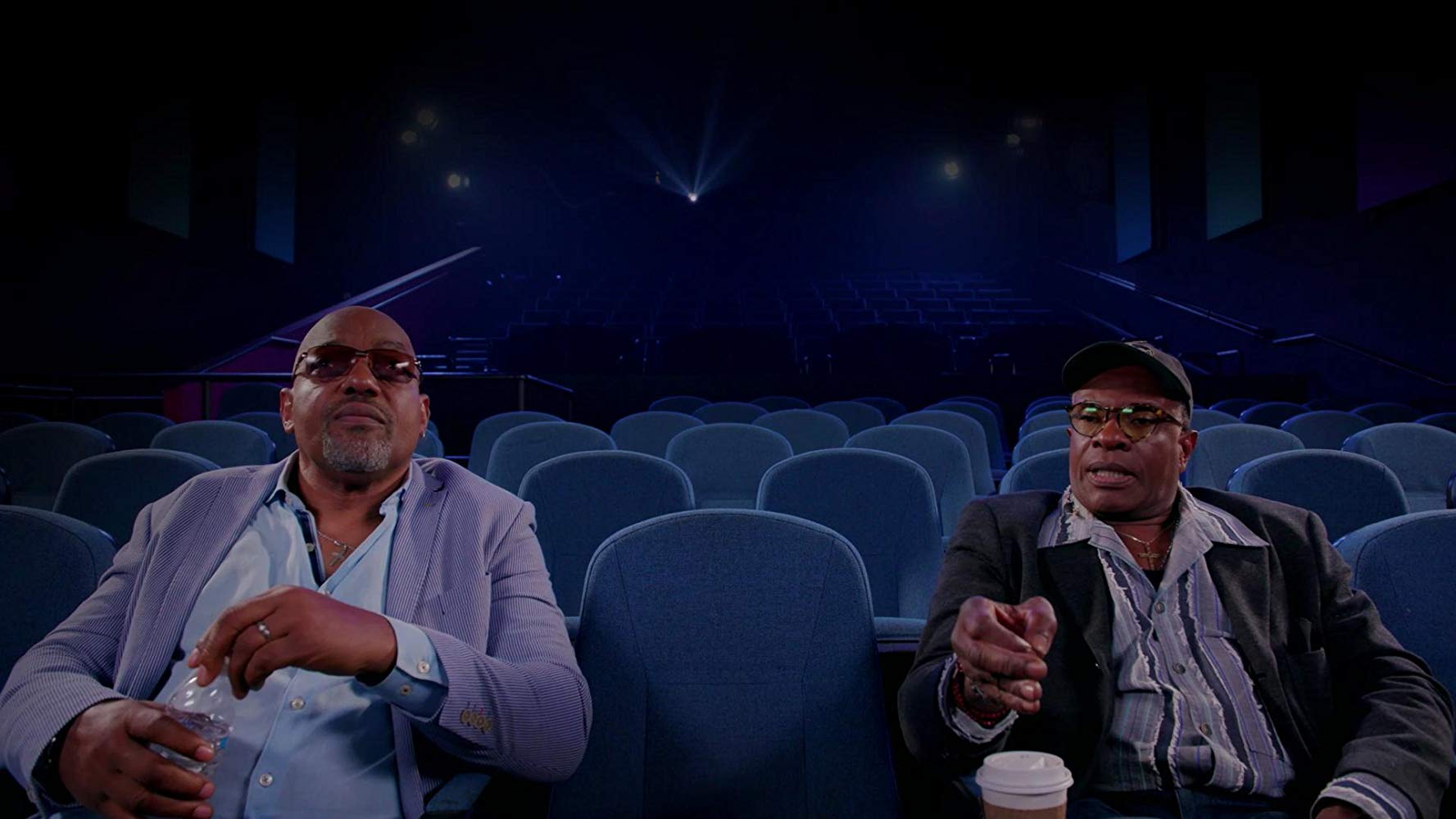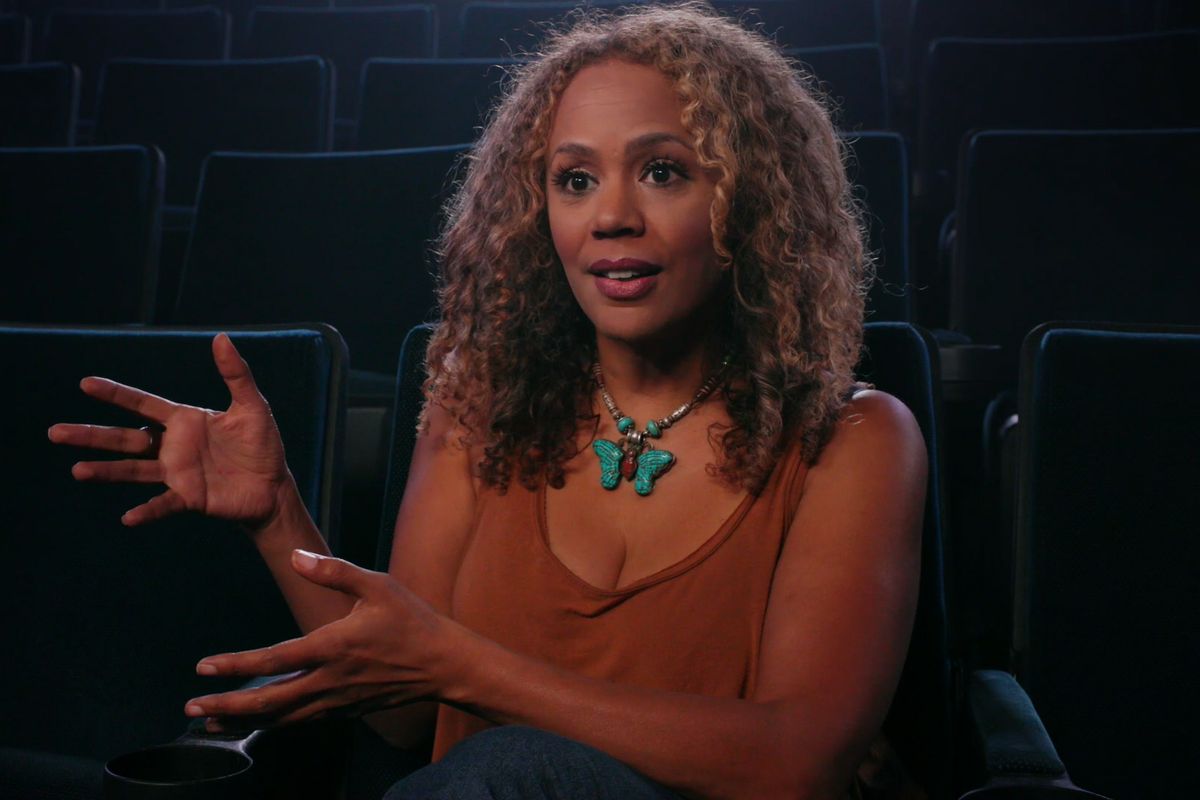About Xavier Burgin
Xavier Burgin is a writer-director from Alabama. A graduate of USC’s School of Cinematic Arts, he’s a Sundance Lab Fellow, an HBO Short Film Finalist, a part of the Ryan Murphy Television Half Foundation, and one of Fast Company’s 100 Most Creative People in Business for 2017. His humor and insight have brought him a massive social media following, and recently he directed the critically acclaimed documentary Horror Noire: A History of Black Horror, for the Shudder network.
He took some time out of his busy schedule to tell us a bit more about that project and what else he’s working on.
Lunacy: Did you always know you wanted to make movies?
Xavier Burgin: No. Not at all. I’m from Alabama and I never even thought filmmaking could be a career path. It wasn’t until I was doing my undergrad at the University of Alabama that I figured out making movies was a viable option.
LU: Most of what you did at USC was scripted stuff. Did you have much documentary experience prior to working on Horror Noire?
XB: I actually directed a couple of short docs at Alabama. One was called Portrait of a Storm: Tuscaloosa, AL and it was all about this tornado that came through Tuscaloosa and the aftermath of that. And the other one was The Bridge and that was about mental health and accessibility in Tuscaloosa.
LU: What about horror films? Were you a horror fan growing up?
XB: Sure. I watched a bunch of stuff when I was young, like Candyman, Event Horizon, all the Scream movies, Saw and that type of stuff. But I also admit that as a younger person I wasn’t completely enmeshed in the horror genre, it was just something I would see constantly.
LU: What films, in any genre, would you say influenced you the most?
XB: I think about Requiem for a Dream, Event Horizon, Fruitvale Station, Malcolm X, and — well, honestly Get Out. Because Get Out made me realize that I can do over the top or weird stuff as a filmmaker. I can hop into the type of genre stuff that you don’t necessarily get to see black filmmakers do on a regular basis. That’s really compelled me to say, “Let me make whatever type of thing that I want to do, and not restrain myself to what other folks think I should do.”
LU: So tell me how you got involved in Horror Noire specifically. Did you pitch this idea or did the producers seek you out?
XB: The producers sought me out. Essentially (producer) Ashlee Blackwell was the first person who said, “I want to make a doc based on this book by Dr. Robin R. Means Coleman.” And once they started working with Shudder, that’s when Shudder suggested getting a young black director that was out there doing their thing. They got a tip from my homeboy, Tommy Oliver, who put me in contact with them. I had to go in and pitch, and apparently I was the person that they liked the most for the job.
Ken Foree and Keith David in Horror Noire.
LU: One of the things I liked the most about the film is that you interview these great subjects who are not just experts and people who made these films, they are also fans of these movies. You place them in the theater and you see the excitement and this nostalgia that they have.
XB: Yeah, when the producers first brought me in, they told me they wanted the audience to be able to see themselves in it. So, they wanted something where it was more of a conversational thing between the folks. That’s what inspired the whole idea of having them in the theater. When I got involved, they already had a good idea of the people they wanted to bring in. It was more about who we wanted to match together and how to set them up in a way that they could talk to one another.
So one of the big things we had to do was figure out if we wanted people to be right beside each other, if they wanted to be a few feet apart, or maybe one’s on one row and the other’s on another row. Setting up the aesthetics of the theater, where we can shoot them and they can still see themselves and what we’re talking about. So many of these people played a role in making black horror what it is today.
LU: Yeah, I loved watching Keith David and…
XB: Ken Foree…
LU: Yeah, Ken Foree, they seem like they’re legitimately enjoying each other’s company. You anticipated, my next question: How did you decide who to pair up with whom? How much of it was chemistry and how much was just scheduling?
XB: Honestly, it was a lot about schedules. We basically had to work around the time the folks could give us. But the producers and I sat down and figured out who would be the most interesting pairings, and we tried to get those ones together if could. But a lot of times it really was a case of, “Okay, we only got this person for a couple of hours, we only got this person for a couple of hours, so let’s put them together and just make sure we start up the conversation with them to get them going.”
LU: And you had a couple of big names too! You got (Get Out writer-director) Jordan Peele on there, who is obviously not just a big name in horror right now, but maybe the biggest black filmmaker of the moment. He’s got a million things going on, so that had to be an interesting experience, having somebody so hot, and who has such an influential movie in this genre.
XB: Yeah, absolutely. One of the greatest things about talking to him was you could see this was a guy who’s had over a decade of experience in the industry, from MadTv and Key and Peele, but he’s still kind of feeling what it means to make something like Get Out, that’s not only important to film, but culturally relevant to American history. You could see in his eyes as he was talking about these films and what they meant to him, how much it meant to become this renowned filmmaker in his own right.
LU: Right, like it almost didn’t occur to him, what an important part of history he was until he saw it in context.
XB: Yeah, I really think he didn’t realize just how big, how huge, how monumental Get Out would be and it really only hit him afterwards when it became this cultural phenomenon.
LU: I think that was a trend with a lot of the people you interviewed, that in retrospect, looking back at these movies like Blacula, you could tell from the way people were reacting that they were all sort of trying to wrap their minds around just how impactful it was to see these faces in this genre of film.
XB: One of the greatest things that I’ve enjoyed as a filmmaker was getting to hear William Crain, the director of Blacula, talk about it. You gotta keep in mind that this guy, in 1972 when Blacula was made, was 23 years old. Which is unprecedented to make a feature film at such a young age, but also to do it in the 70s when black folks weren’t really getting the chance to be behind the scenes making this type of stuff in the director’s role.
And his entire crew was white, so a lot of times he wasn’t given the creative control he needed, and they would push back on what he was trying to do. This was a guy that without him, black filmmakers right now wouldn’t be able to have the type of opportunities that we have.
Rachel True in Horror Noire.
LU: I thought Rachel True was a fun one too. When people think about The Craft, she’s often left out. It was interesting to hear her talk about her experience, and she doesn’t sound bitter, but she puts it into perspective that she didn’t get the break that everyone else got from that movie.
XB: It’s ironic, because if you go back to The Craft, the issue her character had specifically was racism. And then you think about the fact that for a lot of these conventions and reunions, they’re only bringing in her white counterparts. It’s poignant. It becomes even more relevant when you think about what she was dealing with as her character in The Craft.
LU: Let’s talk about some of the other stuff you’ve got going on. I just watched the short that you directed called On Time. Tell me a little more about that.
XB: On Time was the film that I made in Michael Uno’s “directing techniques” class at USC, right before I graduated. It was based on a feature script that I had been writing, about a black woman who leaves her daughter in the car to go to a job interview, and the fallout from that. So I ended up talking to folks that went through that, talking to social workers, showing up to the court to see how these things play out, and just building this feature script on it. The short film had a great festival run, it got on to HBO, helped me get into Ryan Murphy’s directing program, and the screenplay is now starting to win different awards. Essentially what I’m trying to do now is find that microbudget money, like 500k to a million to actually bring the feature to life. I’d love for it to be my first narrative feature film if possible.
LU: Once again, you’ve answered my question before I’ve asked it, because it felt like a small part of a bigger piece. I can definitely see the potential. It’s also interesting to see that you can work across a few different genres, because I know you got a lot of attention for Sassy Batman and your celebrated Twitter story, “Tina and the Gucci Flip Flop.”
XB: Yeah, when I was at USC, except for Sassy Batman, everything else I did was more dramatic stuff but when I got out of school I was like, “I want to build out my name as a filmmaker, as a storyteller, without constantly breaking the bank.” You have to spend four thousand, five thousand, ten thousand, to make these short films, so I pivoted into comedy in my work, and also in social media, just so I could get my name out there. It actually helped a lot because that comedy comes back into the dramatic stuff that I’m doing.
LU: Good to have a lot of tools in your toolkit. So beyond the On Time feature that you’re shopping around, what else are you working on now?
XB: I’ve also been working with Jenna Cavelle, who’s the VP of production at No Label. We just optioned a great script called Grown Ass Man, written by Paris Lay, that we’re trying to get off the ground. I’m also working with Gunpowder and Sky, to do an animated show that deals with black millennial internet culture set in the backdrop of a post apocalyptic world. Also, because of Horror Noire I got a lot of question about if I want to do horror films, and I absolutely do. So I’ve been looking for horror scripts that deal with black and brown people that I can bring to these places that are asking me what I want to do next.
LU: Exciting! Sounds like you’ve got a lot of irons in the fire. Any advice for aspiring filmmakers out there?
XB: Yes. One of the big things is, and I know it’s hard to build this, but you really need some type of support system that allows you to focus on your stuff. With me, for example, one of the great things I have is family out here in Los Angeles, so after school I decided to live with them so I can focus more on my work. It was a choice between getting a nine-to-five job and being able to keep the place I had, but I’d only be able to work on my own stuff on the weekends, or to live someplace where it’s a little bit of a longer drive, but it’s not as financially burdensome, which allows me to really focus on writing and directing as much as possible.
If you can find that type of support system, lean into it. Honestly, the biggest difference for a lot of filmmakers is not going to be your talent. It’s not that you’re a bad filmmaker or you can’t make good stuff. It’s that usually the folks who are getting a lot of attention just have more resources than you.
I think another huge thing is, the folks that I work with the most have been the people I met at USC. The folks that you’re meeting now, early in your career and working on the same level as you are right now, work with them. Don’t think about the folks who are years ahead of you. Those aren’t gonna be the ones that give you opportunities. It’s the people around you that are working their way up the same way that you are.
LU: That’s great. Perfect. All right, thanks a lot for taking some time to talk to us. We loved Horror Noire and can’t wait to see what you do next.
Xavier Burgin’s latest film, Horror Noire: A History of Black Horror, is available now exclusively on Shudder. We highly recommend it!



